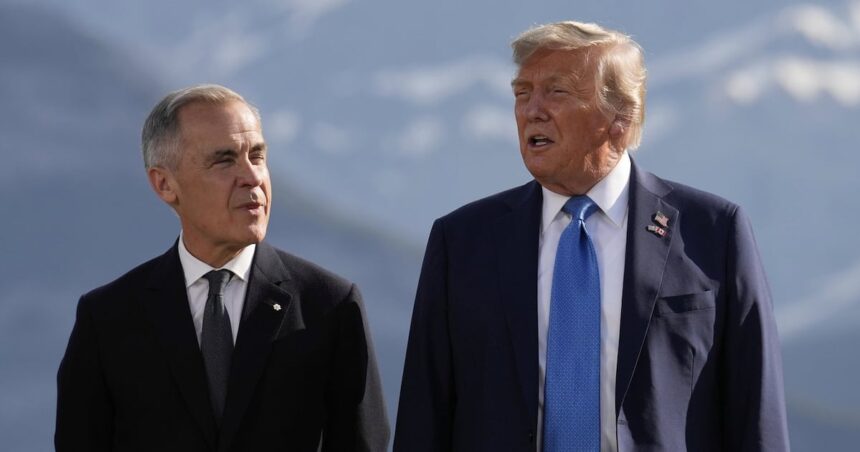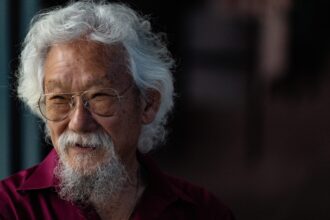In a bold diplomatic maneuver that underscores the fragility of Canada-U.S. relations, Finance Minister Mark Carney is set to meet with former President Donald Trump in Washington next week. This unexpected engagement comes amid mounting concerns over potential trade disruptions that could severely impact Canada’s economic stability should Trump secure victory in the upcoming November presidential election.
“When you’re facing a potential 25% tariff threat, it’s better to take the risk of dialogue than to sit back and hope for the best,” said a senior government official who spoke on condition of anonymity due to the sensitivity of the discussions. The meeting, confirmed by sources in both Ottawa and Washington, represents a significant tactical shift in the Liberal government’s approach to cross-border diplomacy.
Trump’s persistent campaign rhetoric has targeted Canada specifically, promising sweeping tariffs on Canadian goods and suggesting a fundamental restructuring of the Canada-U.S.-Mexico Agreement (CUSMA) that currently governs North American trade. With Canadian exports to the U.S. accounting for nearly 75% of total exports and supporting approximately 1.5 million jobs, the stakes could hardly be higher for Canada’s economic future.
Carney, the former Bank of Canada and Bank of England governor who entered politics earlier this year, brings substantial economic credentials to the table. His appointment to lead this diplomatic mission signals Prime Minister Justin Trudeau’s recognition of the gravity of the situation. “This isn’t just another ministerial visit,” noted Scotiabank economist Jean-François Perrault. “When you send Carney, you’re sending someone with international standing who speaks the language of financial markets.”
The meeting represents a calculated risk for Trudeau’s government. Previous Canadian attempts to engage with Trump during his presidency yielded mixed results, with former Foreign Affairs Minister Chrystia Freeland often bearing the brunt of Trump’s unpredictable negotiating style. Political analysts suggest this preemptive outreach indicates lessons learned from the tumultuous 2017-2020 period when Canada was caught off-guard by sudden tariffs and treaty withdrawals.
Canadian business leaders have cautiously welcomed the news. “At least someone is talking to them,” said Dennis Darby, president of Canadian Manufacturers & Exporters. “Our members have been asking for months what the contingency plan is if Trump returns to office. This suggests there is one.”
Critics, however, question whether engaging with Trump before the election outcome is determined might be premature or potentially counterproductive. Opposition Conservative Leader Pierre Poilievre described the meeting as “desperate diplomacy” that highlights the current government’s failure to strengthen Canada’s economic position over the past nine years.
The Washington meeting is expected to cover more than just tariffs, with energy policy, border security, and defense spending likely to feature prominently on the agenda. Trump has repeatedly criticized Canada’s NATO contributions, claiming the country doesn’t meet alliance spending targets—a claim that government officials dispute but acknowledge remains a friction point.
For everyday Canadians, the implications of these high-level discussions are profound yet often abstract until they manifest as price increases or job losses. Economic analyses suggest that Trump’s proposed 25% tariff on Canadian goods could increase consumer prices by 3-5% across many sectors and potentially trigger a recession in trade-dependent regions.
As Carney prepares for what may be the most consequential meeting of his brief political career, the question remains: can Canada effectively protect its economic interests in an increasingly unpredictable global trade environment where longstanding alliances and agreements seem increasingly fragile?










